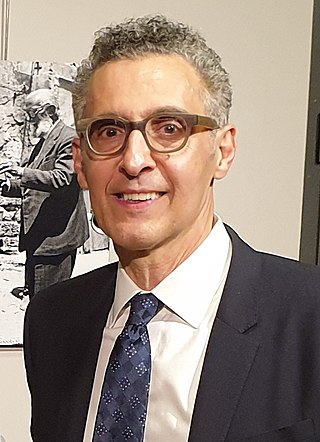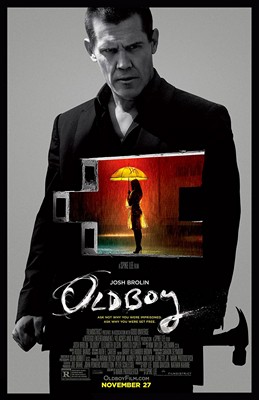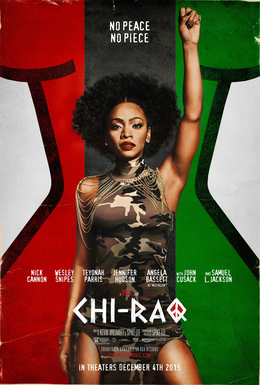
Shelton Jackson "Spike" Lee is an American film director, producer, screenwriter, actor, and author. His work has continually explored race relations, issues within the black community, the role of media in contemporary life, urban crime and poverty, and other political issues. Lee has won numerous accolades for his work, including an Academy Award, two Primetime Emmy Awards, a BAFTA Award, and two Peabody Awards. He has also been honored with an Honorary BAFTA Award in 2002, an Honorary César in 2003, and the Academy Honorary Award in 2015.

Samuel Leroy Jackson is an American actor. One of the most widely recognized actors of his generation, the films in which he has appeared have collectively grossed over $27 billion worldwide, making him the highest-grossing actor of all time. In 2022, he received the Academy Honorary Award as "a cultural icon whose dynamic work has resonated across genres and generations and audiences worldwide".

Do the Right Thing is a 1989 American comedy-drama film produced, written and directed by Spike Lee. It stars Lee, Danny Aiello, Ossie Davis, Ruby Dee, Richard Edson, Giancarlo Esposito, Bill Nunn, John Turturro and Samuel L. Jackson and is the feature film debut of Martin Lawrence and Rosie Perez. The story explores a Brooklyn neighborhood's simmering racial tension between its African-American residents and the Italian-American owners of a local pizzeria, culminating in tragedy and violence on a hot summer's day.

Bamboozled is a 2000 American satirical black comedy-drama film written and directed by Spike Lee about a modern televised minstrel show featuring black actors donning blackface makeup and the resulting violent fallout from the show's success. It features an ensemble cast including Damon Wayans, Jada Pinkett Smith, Savion Glover, Tommy Davidson, and Michael Rapaport.

John Michael Turturro is an American actor and filmmaker. He is known for his varied complex roles in independent films. He has appeared in over sixty feature films and has worked frequently with the Coen brothers, Adam Sandler, and Spike Lee. He has received a Primetime Emmy Award and nominations for four Screen Actors Guild Awards and three Golden Globe Awards.

Annabella Gloria Sciorra is an American actress. She came to prominence with her film debut in True Love (1989) and worked steadily throughout the 1990s in films such as Jungle Fever (1991), The Hand That Rocks the Cradle (1992), The Addiction (1995), Cop Land (1997), and What Dreams May Come (1998). She received an Emmy Award nomination for her portrayal of Gloria Trillo on The Sopranos (2001–2004), appeared as Det. Carolyn Barek on Law & Order: Criminal Intent (2005–2006), and had recurring roles on GLOW (2018), Truth Be Told (2019–2020), and Tulsa King (2022). Her stage credits include The Motherfucker with the Hat.

Mo' Better Blues is a 1990 American musical comedy-drama film starring Denzel Washington, Wesley Snipes, and Spike Lee, who also wrote, produced, and directed. It follows a period in the life of fictional jazz trumpeter Bleek Gilliam as a series of bad decisions result in his jeopardizing both his relationships and his playing career. The film focuses on themes of friendship, loyalty, honesty, cause-and-effect, and ultimately salvation. It features the music of the Branford Marsalis quartet and Terence Blanchard on trumpet. The film was released five months after the death of Robin Harris and is dedicated to his memory, being his final acting role.
"Two Tonys" is the 53rd episode of the HBO original series The Sopranos and the first of the show's fifth season. Written by David Chase and Terence Winter, it was directed by Tim Van Patten and originally aired on March 7, 2004.
"Mayham" is the 68th episode of the HBO original series The Sopranos and the third of the show's sixth season. Written by Matthew Weiner and directed by Jack Bender, it originally aired on March 26, 2006.
"Second Opinion" is the 33rd episode of the HBO original series The Sopranos and the seventh of the show's third season. It was written by Lawrence Konner and directed by Tim Van Patten, and originally aired on April 8, 2001.
"Guy Walks into a Psychiatrist's Office..." is the 14th episode of the HBO original series The Sopranos and the first of the show's second season. Written by Jason Cahill and directed by Allen Coulter, it originally aired on January 16, 2000.
"Commendatori" is the seventeenth episode of the HBO original series The Sopranos and the fourth of the show's second season. It was written by David Chase and directed by Tim Van Patten, and originally aired on February 6, 2000.
"Funhouse" is the 26th episode of the HBO television series The Sopranos, and the season finale of the show's second season. It was co-written by series creator/executive producer David Chase and co-producer Todd A. Kessler, and directed by frequent The Sopranos director John Patterson, and originally aired in the United States on April 9, 2000, attracting about 9 million viewers.
Yusef Kirriem Hawkins was a 16-year-old black teenager from the neighborhood of East New York, in the New York City borough of Brooklyn, who was shot to death on August 23, 1989, in Bensonhurst, a predominantly Italian-American working-class neighborhood in Brooklyn. Hawkins, his younger brother, and two friends were attacked by a crowd of 10 to 30 white youths, with at least seven of them wielding baseball bats. One, armed with a handgun, shot Hawkins twice in the chest, killing him. In 2005, former Gambino crime family member Joseph D'Angelo admitted that the killers were present at his request, meant to serve as protection for his property from an expected racially motivated situation, which instead created the situation.
Tyra Ferrell is an American actress. She is known for her roles in films Boyz n the Hood (1991), Jungle Fever (1991), White Men Can't Jump (1992), and Poetic Justice (1993).

The 44th Cannes Film Festival was held from 9 to 20 May 1991. The Palme d'Or went to Barton Fink by Joel Coen and Ethan Coen.

Oldboy is a 2013 American neo-noir action thriller film directed by Spike Lee, written by Mark Protosevich, and starring Josh Brolin, Elizabeth Olsen, and Sharlto Copley. It is a remake of the 2003 South Korean film of the same name. It follows a man (Brolin) who searches for his captors after being mysteriously imprisoned for twenty years.

Chi-Raq is a 2015 American musical crime comedy drama film, directed and produced by Spike Lee and co-written by Lee and Kevin Willmott. Set in Chicago, the film focuses on the gang violence prevalent in neighborhoods on the city's south side, particularly the Englewood neighborhood.
Bohdan Tůma is a Czech actor and voice actor. He is one of the most famous actors in the dubbing industry of Czech Republic, being the main voice actor for Jack Black, Jim Carrey and Denzel Washington.

Samuel D. Pollard is an American film director, editor, producer, and screenwriter. His films have garnered numerous awards such as Peabodys, Emmys, and an Academy Award nomination. In 2020, the International Documentary Association gave him a career achievement award. Spike Lee, whose films Pollard has edited and produced, described him as being "a master filmmaker." Henry Louis Gates Jr. characterizes his work in this way: "When I think about his documentaries, they add up to a corpus — a way of telling African-American history in its various dimensions."











